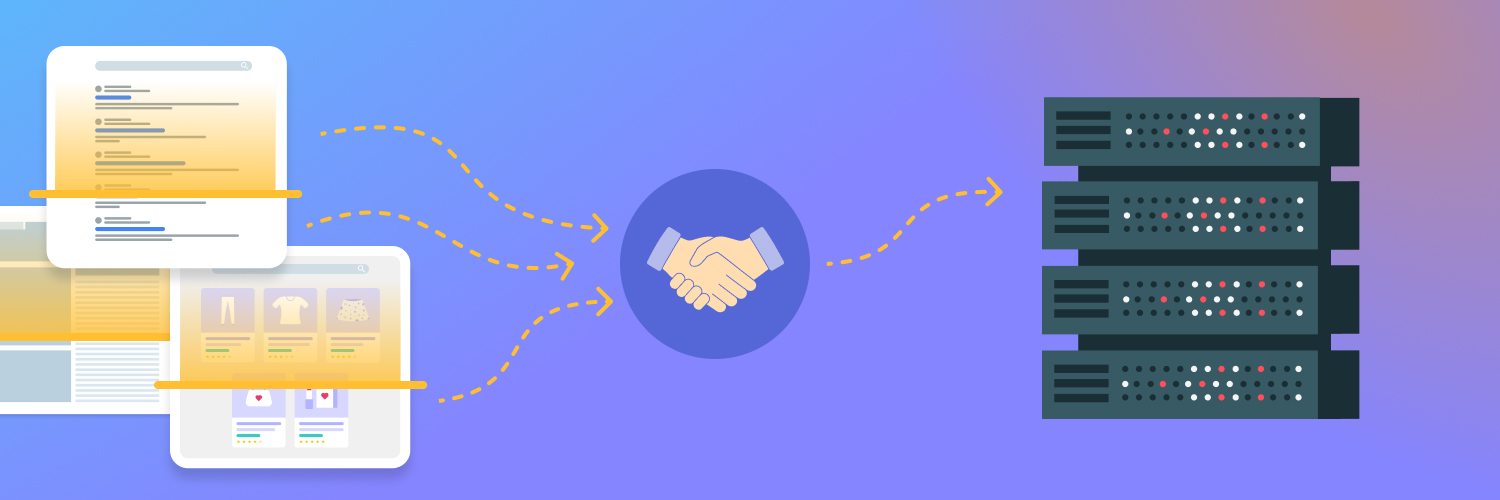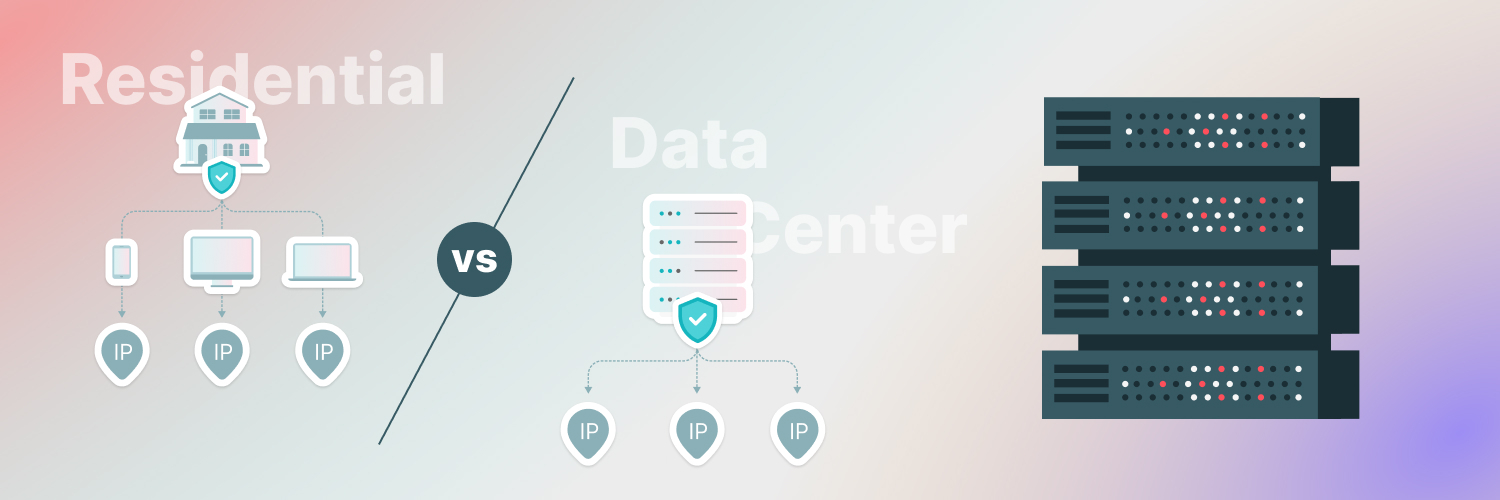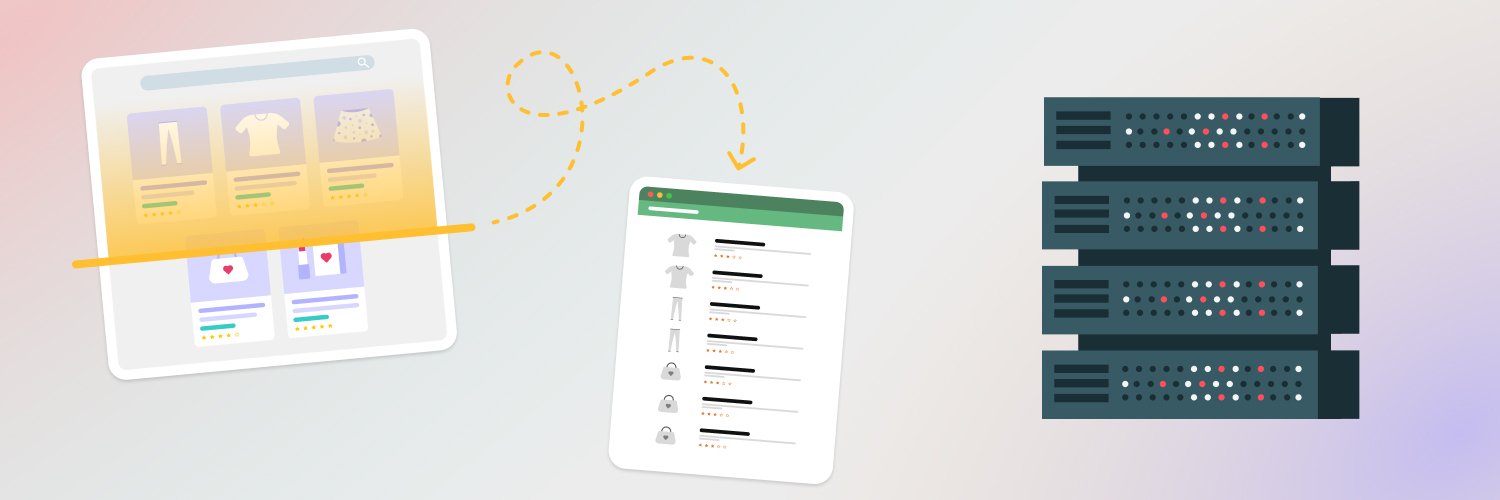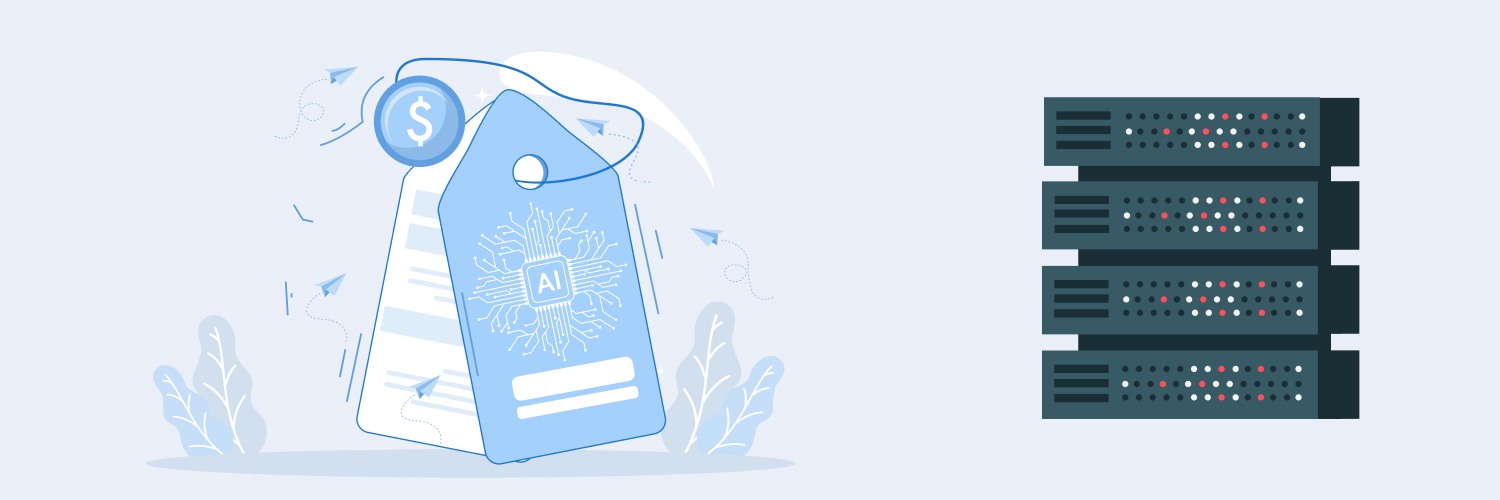Scraping Korean Social Media With IP Residential
Information on public websites, including social media, can be collected, analyzed, and used by all businesses. The websites of your competitors contain a wealth of knowledge available to the public. Social media sites, including Korean social media sites, have millions of users openly sharing their opinions with the public.
You could visit each website and collect each bit of data manually, which would take a tremendous amount of time and effort. The solution is to use a web scraper that can visit numerous sites at once and automatically save data from each site.
You may want to scrape sites for marketing purposes, to collect data such as competitor prices, product descriptions, shipping rates, page metadata, or other information. You may also scrape data such as likes, followers, and comments on social media, including Korean social media, which is the focus here. You can save and organize the data collected in spreadsheets for further research and development purposes.
100% Ethically-Sourced Residential Proxies

Be sure to familiarize yourself with your local laws and the laws of the countries where you’ll be doing your web scraping. Always consider speaking with an attorney if you are unsure of the legalities of this type of online activity. Also, be sure to have the permission of the site and follow any rules set up by the site to prevent scraping. Such rules can be a roadblock if you’re trying to scrape information on numerous rites. Despite these challenges, there are ways you can scrape sites that have rules set up to discourage or block scraping. Let’s learn about them along with ways to scrape Korean social media sites.
What Is Social Media Scraping?

Websites, including social media sites, display their content to the public. A person may view a site such as a social media site, and write down the information found on it, for example. Web scraping is a way to automatically view and record the contents of multiple sites, sometimes many sites at once. This can be done by using software known as a web scraper.
Web scraping software can be coded in Python or another language and programmed to view websites and collect and save information. For example, you may want to know the prices and product descriptions of hundreds of products for sale on an eCommerce website. It would take too long to go to each site and look up and manually record each price and product description in a spreadsheet.
Web scraping for data collection
That’s where automated software, such as a web scraper, can be used to save a monumental amount of time and effort. A web scraper can collect data from numerous sites at once. Even if a site has security systems in place meant to block scraping, there are ways around that, such as using residential proxies. So, you can still collect data from those sites.
To get started with scraping, you’ll need one of the following:
- A scraping program you’ve written in Python or another language
- An open-source web scraper
- A downloaded desktop application that will be your web scraping software on your desktop computer
- A hosted web scraper that you can interface with multiple systems in multiple locations
Hosted solutions that can run in your browser make web scraping easy, without using your computer’s computing power, which can be much slower than using a dedicated online server.
Using hosted web scrapers means you’ll never need to update and purchase a new scraper if technology advances. You’ll can also easily scale up if you decide to start scraping many more pages than when you first started. You can also log in from anywhere, even on mobile devices on the move, and use the software across multiple systems and at various locations.
Using Python to scrape websites
If you’re using Python to scrape Korean social media websites for in-house web scraping, you’ll need to have a little programming knowledge and understanding of the process:
- Choose the type of data you want to scrape from public websites, including Korean social media sites, such as follower counts or user comments.
- Install Python.
- Import libraries such as BeautifulSoup.
- Choose a browser.
- Define objects and lists.
- Extract data from HTML files.
- Export the data.
You’ll provide the program with the URLs you want to scrape and then run the program. From there, you can save the data and analyze it however you wish to get the information you’re looking for. If this process is too technical, you may need to either hire a programmer or use other options for web scraping.
The other options to scrape Korean social media sites are to use a pre-made web scraper program, an open-source web scraper, or a hosted web scraper. In any case, you’ll want to use residential proxies to hide your IP address, as you’ll learn in the next section.
Using Residential Proxies For Scraping

If you’re doing your web scraping with one URL, websites can easily block you. To get around this roadblock, you can use a residential proxy to scrape pages with many different IP addresses. This way, you can protect and mask your identity and IP address, allowing you to circumvent a potential block from web scraping websites.
Even when using a proxy, some larger sites can still detect your scraping activity. Using a proxy isn’t a surefire way to scrape pages completely undetected. If you scrape too many pages in very less time, big websites use an algorithm that can detect your scraping attempts and blacklist all of your IPs, including your proxy IPs. Therefore, it is best to do web scraping in small batches at a time.
100% Ethically-Sourced Residential Proxies

Residential proxies can be used to get around any barriers to scraping sites by tricking the site into thinking you’re using a different IP address to view the site’s contents. Rayobyte provides residential proxies that can solve the problem and let you scrape websites and collect the data you need, including data from Korean social media sites.
Korean Social Media Sites

In South Korea, there is a wealth of information on Korean social networks. Korean social media is a world of its own, with its unique social networks. South Korea has the second fastest internet speed in the world, only following the United Arab Emirates.
If you plan on doing business in South Korea or are going to introduce a product or service in the country, you may want to learn what is on the minds of your potential customers or clients. Social media is a place where people can share their interests. To get a grasp of how Koreans are using social media, first, find out what social media Koreans use.
What social media do Koreans use?
The most popular Korean social media sites are:
- Daum/Kakotalk
- BAND
- Cyworld
These are just a few of the most popular Korean social media sites. Western social media sites are also used. Any of these sites can be scraped for the public-facing data they possess.
According to Pew Research, South Korea is one of the most internet-connected countries in the world, with 99% of its population using the internet. Many Korean people use their mobile devices, surf the internet at lightning-fast speeds, and spend a lot of time sharing their lives on their social media and offering their likes, comments, and sharing habits that could help give your company an edge in the market. Your company can use this wealth of information in various ways, and web scraping is the way to get it.
By looking at social media in the country, you can gather information such as product sentiment and reactions to branding and advertising. You can see what people like, dislike, and argue about. While users talk on social media about all sorts of topics imaginable, their commentary on and engagement with brands, companies, and products may be useful for your business.
What social media do Korean celebrities use?
Celebrities and influencers help to shape public opinion. You can also directly partner with celebrities who use Korean social media. Korean celebrities use Western social media sites in addition to Korean social media sites that are unique to South Korea and whose headquarters are in South Korea.
How can we use the information found on Korean social media sites?
Companies can use the data they’ve extracted from websites, such as Korean social media sites, in several ways. They can use it for market research, competitive analysis, or finding influencers who are the best fit for their brand. Finding the right influencer is important as influencers connect with their vast audiences in ways advertising cannot. They can convince their followers to try your product and can send large amounts of traffic your way.
What you do with the data you’ve scraped may depend on your industry. You can:
- View menu items, event calendars, or product catalogs.
- See which products or services your competitors are offering.
- Find out which keywords their product descriptions are targeting.
- Determine a competitor’s shipping costs.
- Calculate the average prices of a competitor.
- Use data from social media to gauge public opinions on a given topic.
- See social media follower counts.
- Find out which products are getting talked about the most on social media.
- Locate a celebrity or influencer who could be your next sponsored partner.
- Discover how brands are engaging with their followers.
In general, you can collect, analyze, and store your information in spreadsheets. So, you can figure out the kind of information you’re looking for.
Korean Social Media Scraping

Now that you’ve learned about which Korean social media sites you may want to scrape, you’ll need to decide how you’re going to go about the web scraping and how you’re going to avoid getting blocked. So, you can scrape large amounts of data from these sites.
Korean social media platforms may allow you to scrape some of the data from their websites but not all the data in some cases. For example, a social media site may have limitations on which types of data you can scrape but will not allow you to retrieve other information. They may also require you to have an account.
There are several options for scraping social media sites. As mentioned before, you can use your code with languages such as Python, use frameworks such as Selenium, and libraries such as BeautifulSoup. You can also go the non-coding route and purchase a ready-made web scraper.
There are advantages and disadvantages to each. For example, with your code, you can customize your program, whereas, with a ready-made web scraper, you are limited to what the program allows you to do. However, it might be less expensive to use your code. With a hosted web scraper, you don’t have to worry about bugs and crashes, and it is easier to use.
After you’ve chosen which approach to follow, you’ll need to consider hiding your browser fingerprint to prevent you from getting blocked from scraping Korean social media. One way to do that is with residential proxies. When using proxies, your IP address is rotated. So, you are not rate-limited for making too many requests in too short of a time. By rotating your IP addresses, you can scrape large amounts of data in a short period without getting blocked.
Final Thoughts on Social Media Scraping

Korean social media sites are filled with a wealth of data waiting to be scraped. Celebrities and influencers use social media to connect with users. These users could either become your customers or could be providing the information you need to develop your next product. By scraping their likes and comments, you can get product sentiment, discover popular opinions, find out which products are resonating with the public, and other types of valuable data.
Always follow your local laws and use web scrapers and proxies ethically for legitimate purposes. Using residential proxies can provide a level of anonymity and protection of your IP address and allow you to view and collect data from many websites at once without getting blocked. If you need to scrape hundreds or thousands of pages anonymously, then an IP proxy is the solution you’re looking for.
Contact us today for more information about web scraping Korean social media sites, and how to get started using the most popular proxy for web scraping.
100% Ethically-Sourced Residential Proxies

The information contained within this article, including information posted by official staff, guest-submitted material, message board postings, or other third-party material is presented solely for the purposes of education and furtherance of the knowledge of the reader. All trademarks used in this publication are hereby acknowledged as the property of their respective owners.



